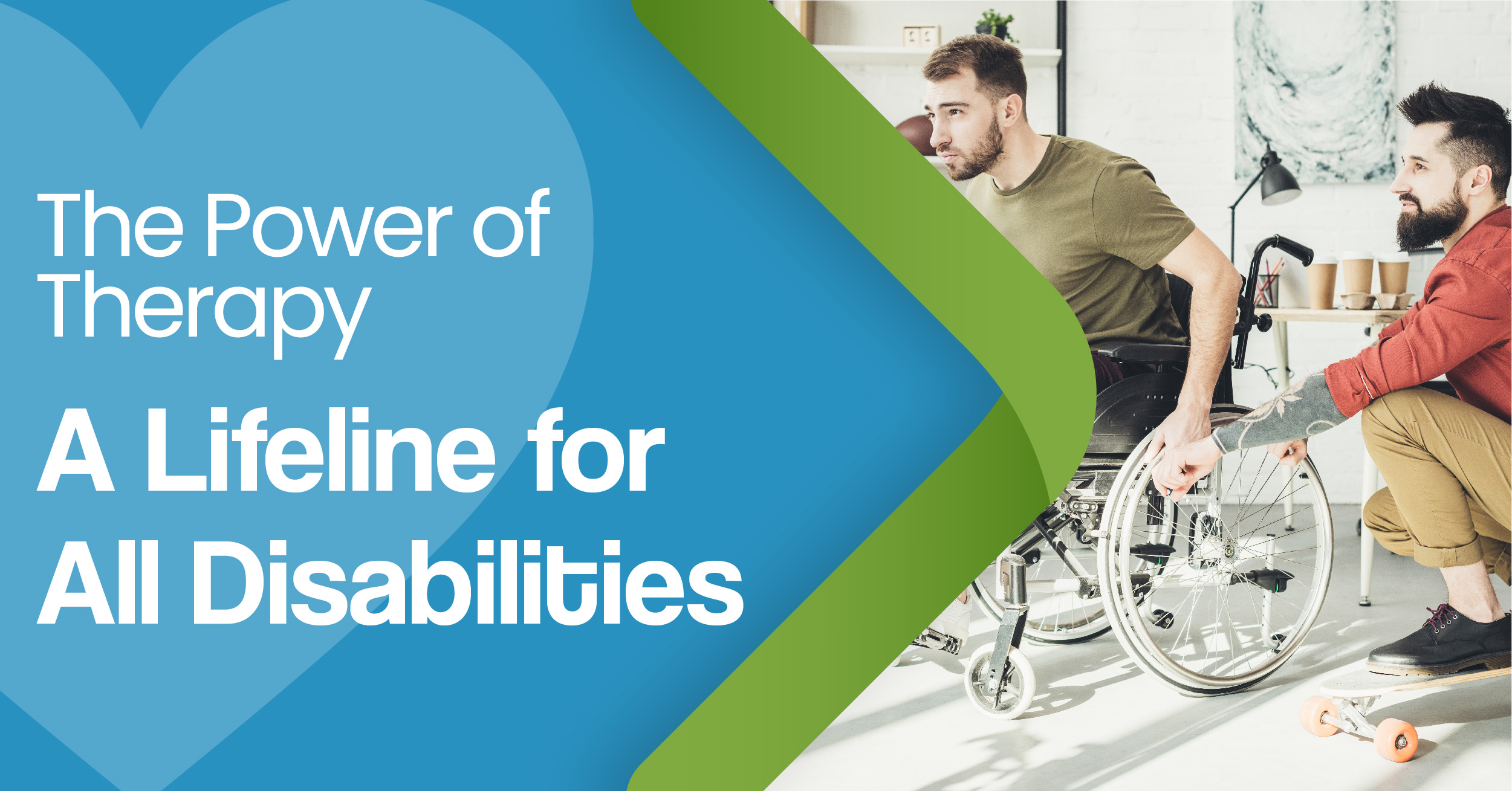Therapy Helpful For All Disabilities
Therapy is a powerful tool that can significantly enhance the quality of life for individuals with disabilities. Whether it’s physical, cognitive, emotional, or developmental disabilities, therapy can offer tailored support and interventions to help individuals achieve their fullest potential. This comprehensive guide explores the various types of therapy beneficial for all disabilities, highlighting their impact and importance.
Understanding the Scope of Therapy for Disabilities
Therapy is an umbrella term that encompasses a wide range of treatments designed to improve physical, emotional, and mental health. For individuals with disabilities, therapy can be tailored to address specific needs and challenges, providing a personalized approach to care.
Types of Therapy Helpful for All Disabilities
- Physical Therapy
Physical therapy focuses on improving movement, strength, and coordination. It is particularly beneficial for individuals with physical disabilities, such as those resulting from injury, surgery, or chronic conditions like cerebral palsy or multiple sclerosis.
Benefits:
- Improves mobility and independence
- Reduces pain and discomfort
- Enhances physical strength and endurance
- Occupational Therapy
Occupational therapy helps individuals develop the skills needed for daily living and working. This type of therapy is crucial for those with physical, developmental, or cognitive disabilities.
Benefits:
- Enhances the ability to perform daily tasks independently
- Improves fine motor skills and hand-eye coordination
- Promotes adaptive strategies for living with a disability
- Speech Therapy
Speech therapy is designed to improve communication skills, which is essential for individuals with speech and language disorders. This therapy can also address swallowing difficulties.
Benefits:
- Enhances communication abilities
- Improves social interaction and relationships
- Supports better academic and professional performance
- Cognitive Behavioral Therapy (CBT)
Cognitive Behavioral Therapy is a form of psychotherapy that helps individuals understand and change their thought patterns and behaviors. It is effective for those with mental health issues, such as anxiety and depression, which can accompany disabilities.
Benefits:
- Reduces symptoms of anxiety and depression
- Improves coping mechanisms and problem-solving skills
- Enhances overall mental well-being
- Group Therapy
Group therapy provides a supportive environment where individuals can share experiences and learn from one another. It is especially helpful for emotional and social support.
Benefits:
- Fosters a sense of community and belonging
- Provides opportunities for social interaction
- Enhances emotional support and coping strategies
The Role of Disability Support Workers in Therapy
Disability support workers play a crucial role in the therapeutic process. They provide practical assistance and emotional support, ensuring that individuals can fully participate in therapeutic activities.
Responsibilities:
- Assisting with daily activities and personal care
- Providing transportation to therapy sessions
- Supporting therapeutic exercises and activities at home
Integrating Home Disability Support Services
Home disability support services offer a convenient and comfortable option for therapy. These services bring therapeutic interventions directly to the individual’s home, making it easier to incorporate therapy into daily routines.
Advantages:
- Reduces the need for travel and transportation
- Provides a familiar and comfortable environment
- Allows for personalized and flexible therapy sessions
The Importance of Disability Care Services
Disability care services encompass a broad range of support options, from in-home care to specialized therapeutic programs. These services are designed to meet the unique needs of individuals with disabilities, promoting independence and enhancing quality of life.
Services Offered:
- In-home personal care and support
- Specialized therapeutic programs
- Community integration and social support
Statistical Insights
According to the World Health Organization (WHO), over one billion people worldwide live with some form of disability. Among them, many individuals benefit significantly from various therapeutic interventions. For instance, studies have shown that:
- Physical therapy can improve mobility in 80% of individuals with physical disabilities.
- Occupational therapy has been found to enhance daily living skills in 75% of participants with cognitive and developmental disabilities.
- Speech therapy improves communication abilities in 70% of individuals with speech and language disorders.
Conclusion
Therapy is a vital resource for individuals with disabilities, offering numerous benefits that enhance physical, emotional, and mental well-being. By understanding the different types of therapy and integrating supportive services, individuals with disabilities can lead more independent and fulfilling lives. Whether through the assistance of a disability support worker or the convenience of home disability support services, therapy remains a cornerstone in the journey toward improved quality of life.
FAQs
1. What types of therapy are most beneficial for physical disabilities?
Physical therapy and occupational therapy are particularly beneficial for physical disabilities, as they improve mobility, strength, and daily living skills.
2. How can speech therapy help individuals with disabilities?
Speech therapy can enhance communication abilities, improve social interactions, and support academic and professional performance for individuals with speech and language disorders.
3. What role do disability support workers play in therapy?
Disability support workers provide practical assistance and emotional support, helping individuals participate fully in therapeutic activities and integrate therapy into their daily lives.
4. Are home disability support services effective?
Yes, home disability support services are effective as they provide therapy in a familiar and comfortable environment, making it easier for individuals to engage in therapeutic activities.
5. Why is group therapy helpful for individuals with disabilities?
Group therapy provides a supportive environment for sharing experiences, fostering a sense of community, and offering emotional support, which can be very beneficial for individuals with disabilities.

